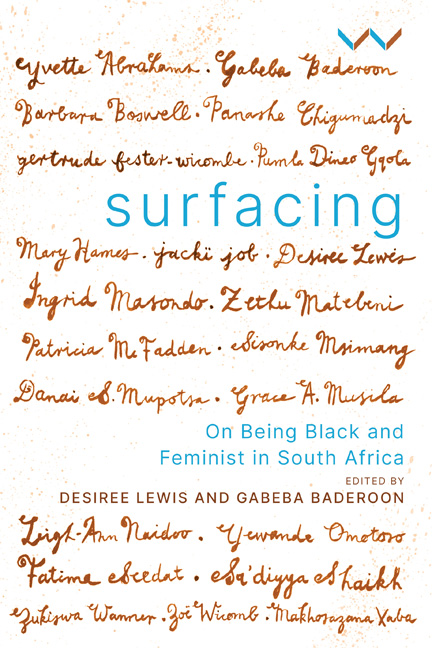Book contents
Chapter 5 - Querying the Queer
Published online by Cambridge University Press: 15 April 2021
Summary
Introduction
Today, sexual orientation, queer struggles, locations (particularly the urban–rural divide) and LGBTIQ identities are foregrounded in most South African discourses on freedom, justice and democracy. This was not always the case. Simon Nkoli, the anti-apartheid and gay rights activist, once addressed his comrades on the matter, saying, ‘I am black and I am gay. I cannot separate the two parts of me into secondary or primary struggle. They will all be one struggle …’ As activists in the 1980s, we were strangely situated: we were progressive educators in political movements and struggles that offered little or no space for us to grapple with central aspects of our personal and political identities. The lives of three queer South Africans who have been fairly prominent public figures by virtue of their activist, educational and political work – Richard Rive, Sally Gross and myself – exemplify this contradiction. By looking at their lives and mine in this chapter, i trace the ways in which queer struggles under apartheid were embedded in lived intersectional experience, even though this experience has been explicitly theorised and written about only fairly recently.
Fragmentation was typical of the identities of South Africans who, in their personal or public lives, resisted gender binaries and dominant heterosexual scripts. We deviated from prescribed gender scripts and homonormativity in complicated and often messy ways. As has been the case elsewhere, South African feminist politics and discourses provide conceptual tools for understanding the politics of difference based on gender, as well as on race, class and other aspects of social identities. I draw on my lived experience and learned knowledge of feminism to unpack these lives and my own.
Radical struggles to live and find freedoms from prejudice and authoritarian violence – at different levels – have been central to the lives of many who resisted apartheid. Multiple struggles against patriarchy were enmeshed with responses to religious chauvinism, and colourism, even among Black South Africans, as well as classism, elitism and prejudices about language. These multiple dynamics have long been a feature of the politics of Black South Africans, with such intersections of oppression being contextually specific.
Information
- Type
- Chapter
- Information
- SurfacingOn Being Black and Feminist in South Africa, pp. 73 - 89Publisher: Wits University PressPrint publication year: 2021
